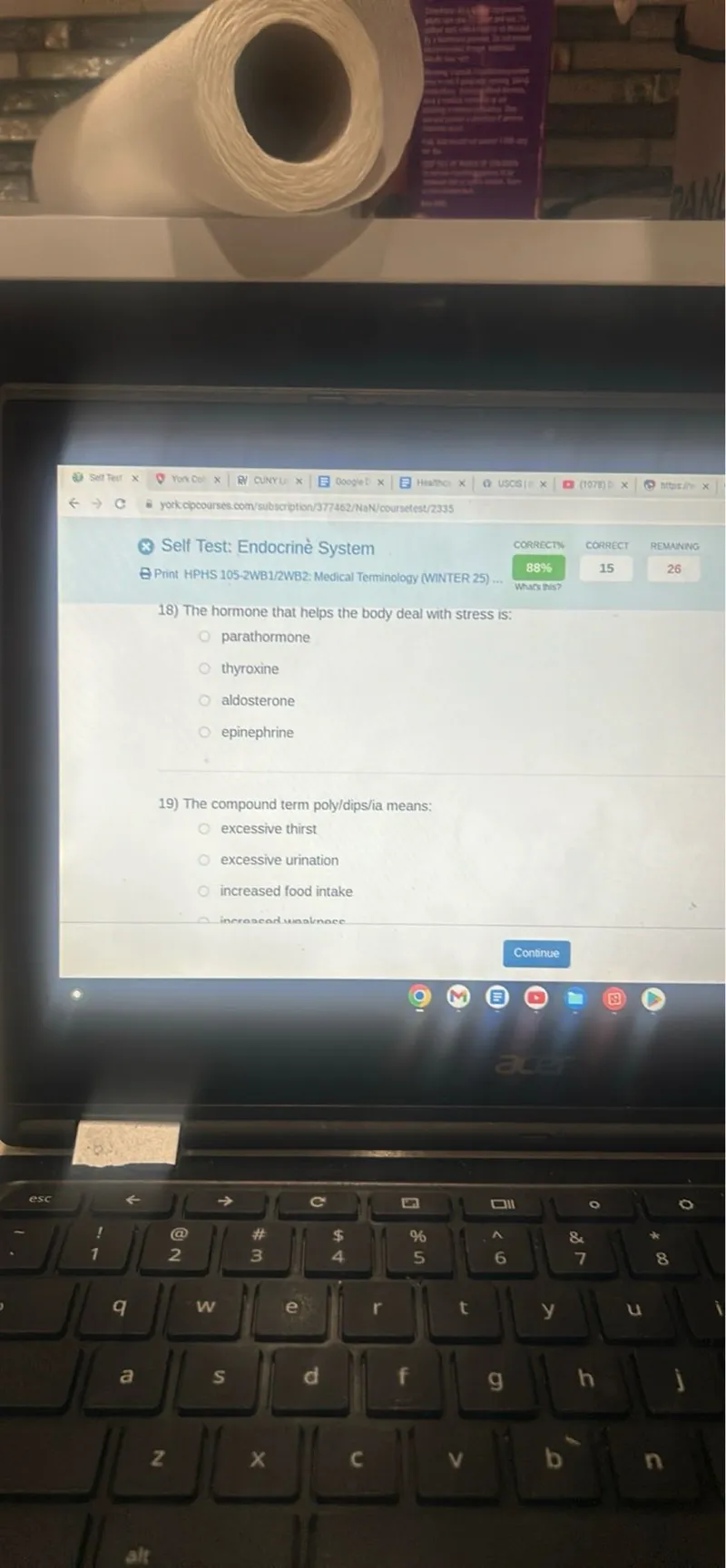Questions: 18) The hormone that helps the body deal with stress is: - parathormone - thyroxine - aldosterone - epinephrine 19) The compound term poly/dips/ia means: - excessive thirst - excessive urination - increased food intake

Transcript text: 18) The hormone that helps the body deal with stress is:
- parathormone
- thyroxine
- aldosterone
- epinephrine
19) The compound term poly/dips/ia means:
- excessive thirst
- excessive urination
- increased food intake





